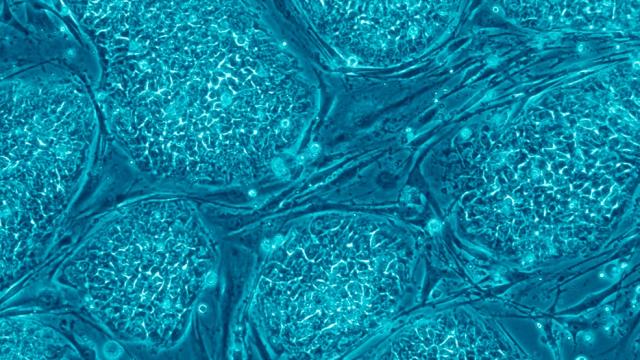Almost two decades ago, scientists succeeded in cloning Dolly the sheep. Now, the same process has been allowed scientists to clone embryonic stem cells from fetal human skin cells for the very first time. There are no more barriers between us and creating human clones.
Cloning in and of itself has been within our reach for a while. Cloning non-human animals has been on the table for nearly two decades, dating back to Dolly the sheep way back in 1996. Cloning human cells has always been a bit rougher of a prospect, partly because it’s just hard, and partly because experimenting with it is ground that needs to be tread very very carefully.
This breakthrough accomplishment, performed by Shoukhrat Mitalipov of Oregon Health & Science University and his colleagues, makes use of a technique called nuclear transfer. In its most basic sense, nuclear transfer is the process of taking one cell — in this case a skin cell — and inserting it into an egg cell, which is then coaxed into dividing. Or in other words, fertilizing an egg cell with a fully formed cell of another sort, instead of a sperm.
This process results in a ball of stem cells that can be grown into a full-fledged clone if it’s allowed to keep developing. That’s how we’ve gotten every successful clone to date, including Dolly back in 1996. But until now, that had never worked with human cells. As documented in the journal Cell, Mitalipov and company have managed to pull off the process using skin cells of a human foetus as fertiliser, creating a whole bunch of embryonic stem cells that could go on to grow into a cloned human being. Not that anyone’s planning to actually do that. Ever. These cells are for medical treatment. Stuff like treating nerve and heart damage.
Mitalipov attributes the recent success mainly to two things. First, there’s the use of healthy, donated eggs — previously eggs used for experiments like this were leftovers from IVF clinics. Second, there’s the slightly new approach to nuclear transfer, with several special tweaks and modifications including the infusion of caffeine at one point. The result is a reliable, high-yeild process that can create, on average, four embryonic stem cell lines from every eight eggs. Mitalipov put it this way:
We knew the history of failure, that several legitimate labs had tried but couldn’t make it work. I thought we would need about 500 to 1000 eggs to optimise the process and anticipated it would be a long study that would take several years. But in the first experiment we got a blastocyst and within a couple of months we already had an (embryonic) stem cell line. We couldn’t believe it.
The implications here are huge, from both a medicinal and ethical standpoint. In the past, other scientists experimented with cloning processes that avoided ethical quandaries like extracting fetal cells, but none of those were nearly as reliable as this one. And this approach might be able to work with adult skin cells — removing fetuses from the equation — but it’s still too early to tell.
And while the stem cells generated here definitely aren’t intended to be used to produce actual, living, human clones, there’s no reason to believe they couldn’t be. And life potential like that is bound to raise all sorts of questions.
But aside from all that, this cloning process holds promise for the treatment of all kinds of degenerative diseases, though you can bet it will be a long, hard road to any sort of standardisation for a whole wide variety of medical and legal reasons. Still, it’s a huge step forward for science, and for young megalomaniacs who aspire to live forever through clones someday. [Time via CNN]
